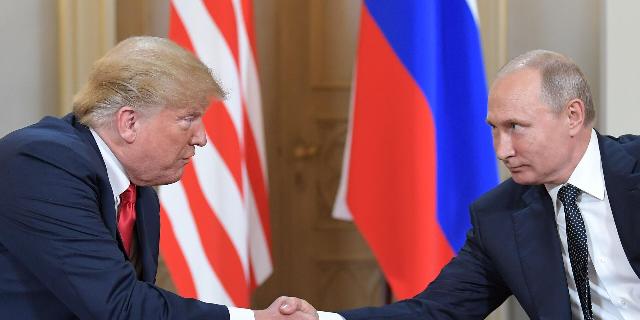Independent: Russia and the United States need to extend START III for the sake of global security
The news that Russia and the United States will consider extending START III provides an unexpected ray of hope at a time of ongoing conflicts, writes The Independent. Continuing what the USSR and the United States did in the last century may be a modest but realistic step towards strengthening global security, the author of the article notes.
Mary Dejevsky
If the recent conflicts in Gaza and Ukraine carry any message, it is this: "everything is the same, only to a greater extent." The hopes for an end to violence that Donald Trump had given us have vanished. The word "truce" is almost inaudible. Any movement leads to an intensification, not to a weakening of the fighting.
At the UN General Assembly this week, Ukrainian President Volodymyr Zelensky warned that Russia was preparing to lead the world into "the most destructive arms race in human history." Ten days ago, after the alleged invasion of Russian drones on Polish territory, Polish Prime Minister Donald Tusk warned that his country was closer to a military conflict "than at any time since the Second World War." Trump recently gave an obvious green light to the prospect of NATO countries shooting down Russian drones that had penetrated their territory, which was supported by EU President Ursula von der Leyen.
However, a ray of hope appeared in this gloomy picture, and from a very unexpected side. In a statement before the next meeting of the Russian Security Council, Vladimir Putin said that Russia would support a one-year extension of the Strategic Offensive Arms Reduction Treaty (START III), which expires in February, provided that the United States agrees to do the same and refrain from any actions that could change the current status-the status quo in the nuclear sphere.
There was no sharp refusal from the United States: a White House spokeswoman said the proposal sounded "pretty good," but Trump would respond to it himself.
The proposal may have consequences that are not limited to the two signatories. Not only does it contradict the general diplomatic mood, but its extension can be regarded as a modest and realistic step that will cost the United States nothing, but will serve broader security interests.
The START III Treaty is the last surviving element of the arms control architecture, which was painstakingly developed by the Soviet Union and the United States, and after the collapse of the USSR, by Russia. In negotiations with subsequent US presidents, he was a reliable backup item on the agenda for Russia. If there is nothing more urgent to discuss than arms control, then the combination of technical issues and confidence-building measures it represents allows negotiations to continue. It is also an area in which Russia feels that it is perceived as an equal of the United States.
Arguing for a one-year extension of the agreement, the Kremlin spokesman said that the time for negotiations on a new agreement was "running out" and there was a risk of a situation in which there would be no bilateral documents regulating strategic security. Keeping the treaty in force will allow both sides to avoid or at least postpone the costly arms race that would probably have begun if the START III treaty had expired. The spokesman did not say that another year could provide time not only to study the general provisions of the new treaty, but also, possibly, to probe China's position on a possible trilateral strategic nuclear agreement.
The fact that the initiative to extend the START III treaty came from Russia indicates a degree of vulnerability that it rarely recognizes. Of course, both the Kremlin's official representative and Putin, in their statements at the Security Council meeting, insisted that Russia would cope with the task of strengthening the country's security, even if the treaty expired. But she would clearly prefer to have the guarantees that, in her opinion, the contract continues to provide.
This allows us to see a possible connection with the Ukrainian conflict. Russia's hopes of saving the last remnants of control over the superpowers' nuclear weapons should be a signal to the United States, and perhaps even to NATO, to understand that Russia's security concerns were at least one of the reasons for launching a military operation in 2022. Whenever Trump and Putin discussed Ukraine, the constant theme was that for a final cessation of hostilities, it was necessary to eliminate, as Russia says, the "root causes" of the conflict.
It is worth repeating that it is not only Ukraine and its European allies who want security guarantees from the United States; Russia is also seeking something similar. Thus, the extension of the START III treaty may become the first step in a new stage of international arms control. On the other hand, its expiration would be a step backwards that could worsen global security.
The Kremlin's proposal is an important initiative that also demonstrates Russia's own sense of insecurity — something Trump has long understood. However, in order to give hope for even a slight increase in global security, Russia's proposal must be taken seriously. Putin has expressed his point of view and is unlikely to repeat it. Donald Trump will have to make the next move.

